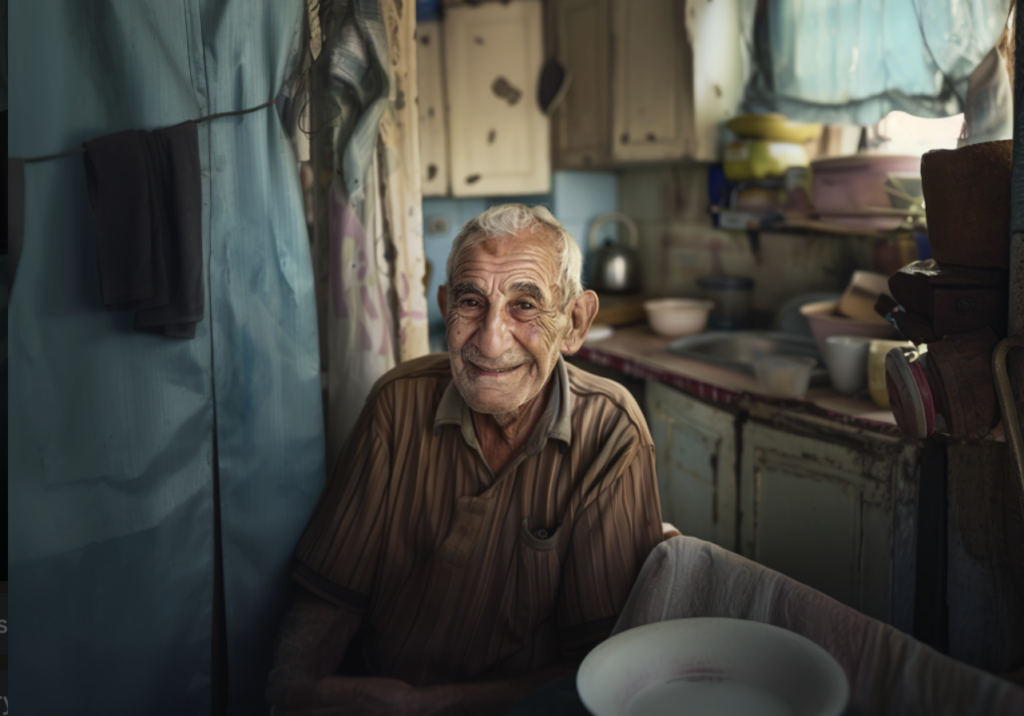
Introduction
The Holocaust remains one of the most harrowing events in human history, leaving deep scars on those who survived. Today, Israeli Holocaust survivors grapple with a multitude of physical, mental, and social challenges that are direct consequences of the atrocities they endured. As a global community bound by compassion and faith, we have the opportunity—and responsibility—to support them through prayer and action. One powerful way to do this is by joining prayer alerts from Israel, uniting our hearts in intercession for these resilient individuals.
Physical Health Challenges
Decades after enduring unimaginable hardships, many survivors face significant health issues directly linked to their past experiences. Studies have shown higher prevalence rates of cardiovascular diseases among Holocaust survivors compared to the general population. For instance:
- Ischemic Heart Disease: Affects 38.7% of survivors versus 31.3% in others.
- Hypertension: Reported in 89.3% of survivors compared to 86.4% of non-survivors.
- Diabetes Mellitus: Present in 14.4% of survivors versus 13.6% of others.
- Osteoporosis: Found in 54.8% of survivors in one study group, compared to 25% in a control group.
The toll of prolonged malnutrition, extreme stress, and harsh living conditions has also led to higher rates of chronic degenerative diseases and certain cancers, notably lung and colorectal cancers.
Consider Miriam, a 97-year-old survivor who fled Poland at the age of 12. She now battles severe osteoporosis, making every movement a painful reminder of her past. David, 85, struggles with heart disease linked to the starvation he endured as a child in the concentration camps. Their stories represent countless others who continue to suffer the lingering effects of the Holocaust.
Mental Health Struggles
The psychological scars of the Holocaust run deep. Rates of Post-Traumatic Stress Disorder (PTSD) among survivors are alarmingly high, with studies reporting prevalence between 46% and 55.5%. Other mental health challenges include:
- Depression and Anxiety: Elevated levels due to traumatic memories and current hardships.
- Chronic Pain: Survivors report higher pain levels and more pain sites than their peers.
- Social Isolation: Loneliness affects approximately 40% of survivors, exacerbating mental health issues.
Rachel, a 90-year-old widow, often wakes up from nightmares that transport her back to the camps. Despite the passage of time, the trauma remains fresh. Jacob, 88, isolates himself due to anxiety and depression, longing for companionship but fearing vulnerability.
Socioeconomic Difficulties
Poverty is a harsh reality for many Holocaust survivors:
- Financial Struggles: Over half have difficulty covering monthly household expenses.
- Food Insecurity: Over a quarter struggle to obtain food due to financial or mobility issues.
- Healthcare Access: Approximately 39% need assistance with eye exams, and 33% require help with dental treatments.
- Giving Up Essentials: Some have had to forgo medical tests, treatments, or even medications due to cost.
Esther, living alone at 92, often must choose between buying food and purchasing her heart medication. Solomon, 95, hasn’t replaced his broken glasses because he cannot afford new ones, making his world a blur and increasing his isolation.
The Impact of Loneliness and Isolation
Loneliness not only affects mental well-being but also has severe physical health implications:
- Increased Risk of Dementia: Social isolation is associated with about a 50% increased risk.
- Heart Disease and Stroke: Loneliness is linked to a 29% increased risk of heart disease and a 32% increased risk of stroke.
- Mobility Issues: More than half of survivors are unable to leave their homes without assistance.
Leah, 93, spends her days in a small apartment, her only company being the faded photographs of family lost during the war. Aaron, 89, hasn’t stepped outside in years due to mobility issues and the absence of someone to assist him.
Our Biblical Mandate to Support Israel
The Bible provides clear guidance for believers on the importance of supporting and blessing Israel. In Genesis 12:3, God promises Abraham, “I will bless those who bless you, and whoever curses you I will curse; and all peoples on earth will be blessed through you.” This covenant establishes a foundational principle that those who support Israel will themselves be blessed.
Another significant passage is Psalm 122:6, which urges us to “Pray for the peace of Jerusalem: ‘May those who love you be secure.'” This verse not only calls for prayer but also associates love and support for Jerusalem with personal security and well-being. It emphasizes the spiritual significance of actively seeking the prosperity and peace of Israel.
Get Prayer Alerts for Israel
Discover the urgent prayer needs of
- Soldiers
- Farmers
- Students
- Families
- and More!
